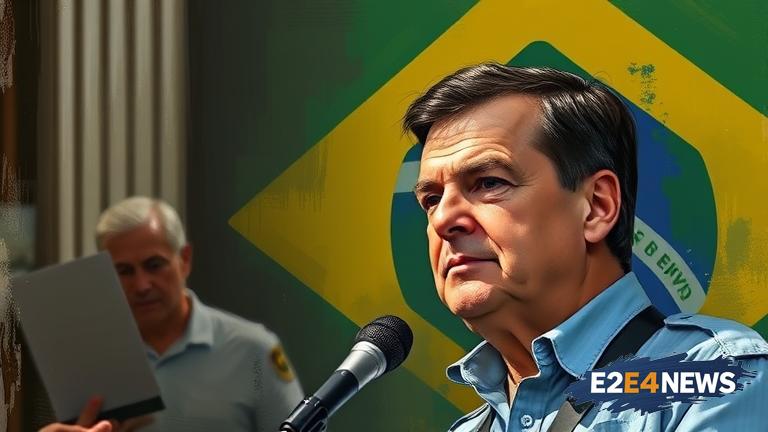In a dramatic turn of events, Brazil’s Supreme Court has ordered former President Jair Bolsonaro to be placed under house arrest, sparking widespread debate and concern across the country. The decision was made in response to growing tensions and protests that have been escalating in recent weeks. Bolsonaro, who has been a vocal critic of the current government, has been accused of inciting violence and promoting unrest among his supporters. The Supreme Court’s ruling is seen as an attempt to mitigate the risk of further conflict and ensure the former president’s safety. The house arrest order is expected to be enforced immediately, with Bolsonaro required to remain at his residence and refrain from engaging in any activities that could be deemed inflammatory or disruptive. The move has been met with a mix of reactions, with some hailing the decision as a necessary measure to maintain public order, while others have condemned it as an attack on Bolsonaro’s freedom and a threat to democracy. The former president’s supporters have vowed to continue protesting and demanding his release, while opponents have welcomed the ruling as a step towards restoring stability and calm. The situation remains volatile, with many fearing that the house arrest order could exacerbate tensions and lead to further clashes between rival groups. The Brazilian government has urged citizens to remain calm and respect the rule of law, while also acknowledging the need to address the underlying issues that have contributed to the current crisis. The international community is watching the situation closely, with many expressing concern over the potential implications for regional stability and democracy. The United States, European Union, and other major powers have called for restraint and dialogue, urging all parties to work towards a peaceful resolution. As the situation continues to unfold, it remains to be seen how the house arrest order will impact the broader political landscape in Brazil. The country has been plagued by corruption, economic instability, and social unrest in recent years, and the current crisis has highlighted the deep-seated divisions and challenges that need to be addressed. The Supreme Court’s decision is likely to be seen as a test of the country’s institutions and its ability to uphold the rule of law, even in the face of intense political pressure. The former president’s fate remains uncertain, with many speculating about the potential consequences of the house arrest order and the likelihood of further legal action. The Brazilian people are eagerly awaiting developments, with many hoping that the situation will be resolved peacefully and that the country can begin to heal and move forward. The international community is also watching with bated breath, aware that the outcome of this crisis could have far-reaching implications for the region and beyond. In the meantime, the Brazilian government and judiciary must navigate the complex and sensitive situation, balancing the need to maintain public order with the need to protect individual rights and freedoms. The road ahead will be challenging, but it is essential that all parties work towards a peaceful and democratic resolution. The world is watching, and the outcome of this crisis will have significant implications for Brazil, the region, and the global community. The situation is complex, and the path forward is uncertain, but one thing is clear: the fate of Brazil and its people hangs in the balance. The country’s future depends on the ability of its leaders to navigate this crisis and find a way forward that promotes stability, democracy, and the rule of law. The house arrest order is just the beginning, and it remains to be seen how the situation will unfold in the coming days and weeks. One thing is certain, however: the world will be watching, and the outcome of this crisis will have far-reaching implications for Brazil and beyond.





